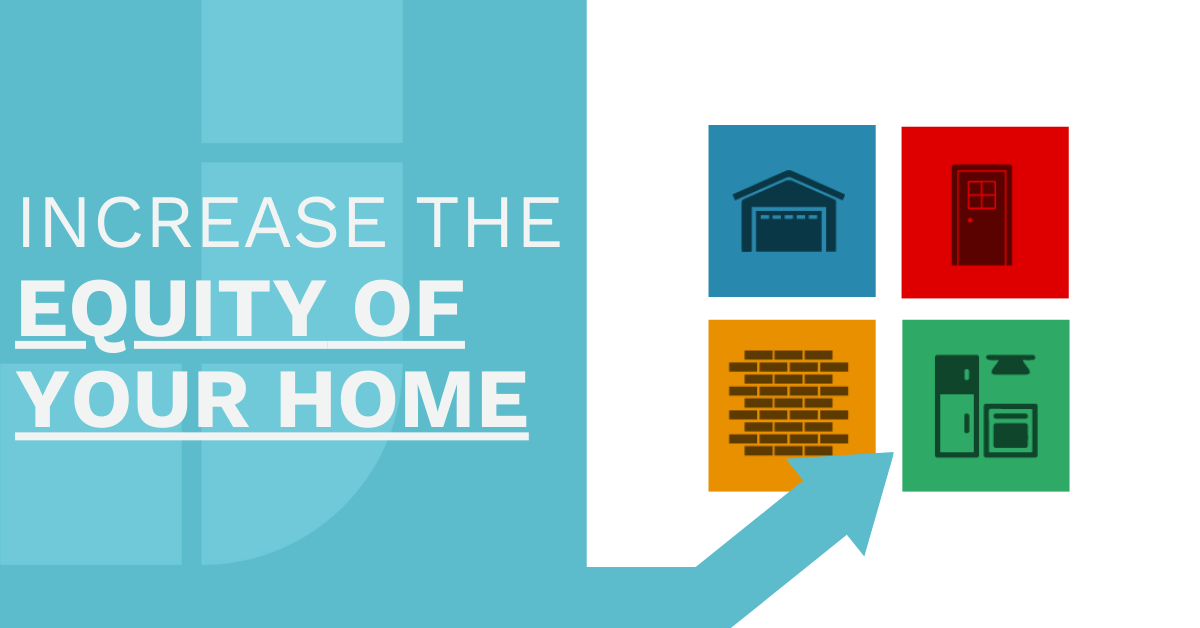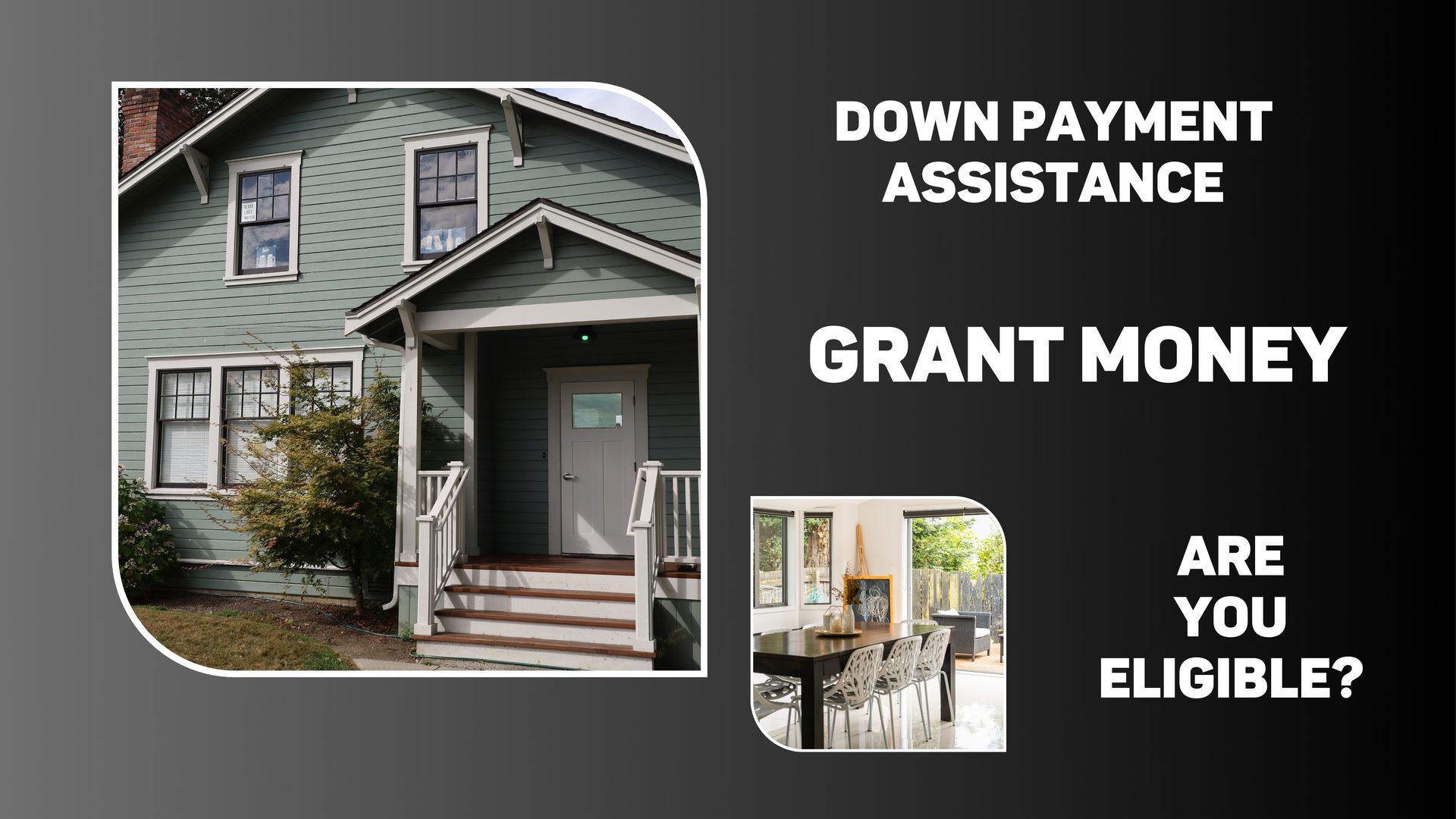
7 Tips to Maximize Your Home’s Sale Price
7 Tips to Maximize Your Home’s Sale Price
Over the past few years, a real estate buying frenzy bid up home prices to eye-popping amounts. However, as mortgage rates have risen, buyer demand has cooled. 1 Consequently, home sellers who enter the market today may need to reset their expectations.
The reality is, it’s no longer enough to stick a “for sale” sign in the yard and wait for buyers to bang down the door. If you want to net the most money possible for your property in today’s market, you’ll need an effective game plan and a skilled team of professionals to implement it.
Fortunately, we’ve developed a listing strategy that combines our proven approach to preparation, pricing, and promotion—all designed to help you get top dollar for your home. But you will play an important role in the selling process, as well.
Here are some crucial steps you can take to set yourself up for success as a home seller in this market:
- Make Strategic Repairs and Improvements
When you sell something, it’s important to consider what your customer wants to buy. And according to the National Association of Realtors, only 6% of today’s buyers report that they are looking for a DIY fixer-upper.2 The vast majority want a move-in-ready home, which means that any outstanding repairs or dated features can be a major turn-off.
Before your home goes on the market, we’ll conduct a thorough walk-through to identify any problems that could prevent it from selling. In some cases, we may recommend a professional pre-listing inspection. Finding and addressing issues like leaks, rot, and foundation problems up front can pay off in the final sale price. Plus, it prevents sales from falling through because of a red flag on the home inspection, a scenario no seller wants to face.
Beyond repairs, we’ll also help you identify the simple upgrades that offer the highest return on your investment. For example, new paint can give your home a fresh look at a reasonable cost. However, it’s important to choose the right colors. One study found that painting your bathroom light blue could lead to a 1.6% increase in the offer price!3 Similarly, minor landscaping improvements can pay off in a major way. A healthy lawn offers an estimated 256% return on investment.
2. Declutter and Depersonalize
When buyers look at a home for sale, they’re trying to envision themselves living there. That’s hard to do if it’s chock-full of the current owner’s family photos, children’s artwork, and souvenir collections. Plus, cluttered homes look smaller, and older items can make them feel dated.
Decluttering before you put your home up for sale will help you in the long run—after all, you’ll need to move all your things to your new home eventually. Now is the time to shred, digitize, or organize old documents, donate old clothes, or move bulky furniture into storage. At a minimum, you’ll want to pack away excess items neatly before potential buyers view the home. Remove personal photos and other trinkets to create a blank slate that viewers can imagine decorating with their own prized possessions.
If you feel overwhelmed by this process, we’d be happy to make recommendations or refer you to a local service provider who can help.
3. Stage Your Home for Success
Just as you take care to dress professionally for a job interview, you should always ensure your home looks its best for potential buyers. Home shoppers today are used to scrolling through Instagram and Pinterest, and they want to see the same wow factor when touring a home.
The process of making your home look its best and appeal to potential buyers is called staging, and it can be a game changer. According to the International Association of Home Staging Professionals, an average priced staged home sells 5 to 11 times faster than its unstaged counterpart. Even better, the majority of staged homes sell for 4% to 20% over list price!
Some sellers hire a professional stager, who may bring in furniture and decor to increase the home’s appeal. Others choose to stage their homes themselves. We can help advise you on which route to choose and how much to invest in the process.
It’s also important to consider what buyers in your neighborhood are likely to be looking for in a home. We can help guide your staging choices with our local market insights. For example, in neighborhoods where a large share of residents work from home, it may be effective to stage one room as an office space so potential buyers can envision their day-to-day routine.
4. Prep for Each Showing
Most of us don’t live picture-perfect lives, and our homes reflect that (sometimes messy) reality. But when your home is on the market, it’s important to ensure that it is always ready for viewers, even on short notice. A missed showing is a missed opportunity to sell your home!
Before your home hits the market, it may be worth hiring professional cleaners to get in all the nooks and crannies. After, try your best to keep things spic and span. Just a few minutes a day wiping down counters, sweeping the floors, and vacuuming can make a big difference.
It’s also worth noting that most buyers will open cabinets, drawers, and closets—so try to make sure everything is as neat and organized as possible. Keep toiletries and small appliances off countertops, and secure valuables and sensitive documents in a safe or off-site.
Want help finding a cleaning service to make your home shine for buyers? Reach out for a referral!
5. Price Your Home Correctly From the Start
In the past few years, you may have seen homes in your neighborhood sell for shocking amounts and wondered if you could get a similar price for your property. The temptation to list your home on the high side can be strong, but it’s best to be realistic from the start. Even in a hot market, some homes will sit for months. And the longer a property is listed, the more buyers worry that something is wrong with it.
Of course, you also don’t want to set your price too low and lose out on potential profit. That’s why it’s essential to work with real estate agents (like us!) who know the ins and outs of our local market and what buyers are willing to pay today. In a quickly-evolving market, comparable sales from a few months ago can lag the current market reality.
Fortunately, if you’ve owned your home for several years, chances are good that it’s worth much more today than you paid for it. That means you stand to walk away with a handsome profit. In fact, recent reports show that homeowner equity is at an all-time high.
6. Avoid Acting on Emotion
The past few years of over-asking-price offers with few contingencies have set certain expectations for many sellers. It’s only natural to feel hurt or even offended if an offer comes in lower than what you think your home is worth.
However, it’s important to keep in mind that those market conditions were unprecedented, and we are now returning to a more typical market. Home sellers who act rationally, rather than emotionally, are going to get the best results.
Remember: You can always counter a low offer. The same goes for repair requests and contingencies—everything is negotiable. However, it’s important to accept that the market is adjusting and flexibility is key. Keep your expectations reasonable, and remain open-minded. And you can rest assured knowing that we’ll be by your side every step of the way to help you navigate the process and negotiate a great deal.
7. Work With a Local Market Expert
The economics impacting mortgage rates may be national, but real estate markets are hyperlocal. That’s why working with a professional agent who understands your neighborhood’s dynamics is essential. Through our experience, we’ve gathered insights that can help us position your home for success in this market. Plus, we have the resources to connect with qualified buyers searching for a home like yours.
Working with a knowledgeable agent is also the secret to getting as much money as possible for your home. We have access to extensive data on recent sales in your neighborhood, which we will use to price and promote your property. That’s one reason why homes sold by agents draw much higher prices than those sold by their owners alone. While for-sale-by-owner homes went for a median price of $260,000 in 2020, the median for homes sold by agents was $318,000. That’s a difference of $58,000—and money you don’t want to leave on the table.
YOUR AGENT AND ADVOCATE
Selling a home in a fast-changing market can be stressful. You’re likely to hear conflicting advice and opinions from people in your life, and decisions like what color to paint your front door or how much to list your home for can be overwhelming.
That’s where we come in. The market may be adjusting, but it’s still highly advantageous for sellers—and we’re here to help you make the most of it. We’re listing experts in our area, and we know what steps you need to take for a smooth, profitable transaction.
If you’re considering buying or selling a home, we invite you to reach out to schedule a free consultation. We’re happy to talk through your specific situation and goals and help you identify your next steps.
The above references an opinion and is for informational purposes only. It is not intended to be financial, legal, or tax advice. Consult the appropriate professionals for advice regarding your individual needs.
Sources:
1. Yahoo! Finance - https://finance.yahoo.com/news/bidding-war-rate-drops-lowest-120000537.html
2. National Association of Realtors - https://cdn.nar.realtor/sites/default/files/documents/2022-home-buyers-and-sellers-generational-trends-03-23-2022.pdf
3. Zillow - https://www.zillowgroup.com/news/paint-colors-that-could-lead-to-higher-offers/
4. Angi - https://www.angi.com/articles/smart-landscaping-tips-can-increase-home-value.htm
5. International Association of Home Staging Professionals - https://pages.iahsp.com/home-staging-statistics/
6. Washington Post - https://www.washingtonpost.com/business/2019/07/22/just-because-its-sellers-market-doesnt-mean-you-should-overprice-your-home/
7. Realtor.com - https://www.realtor.com/research/changes-in-value-of-household-real-estate-q2-2022/
8. National Association of Realtors - https://www.nar.realtor/research-and-statistics/research-reports/highlights-from-the-profile-of-home-buyers-and-sellers#purchased




